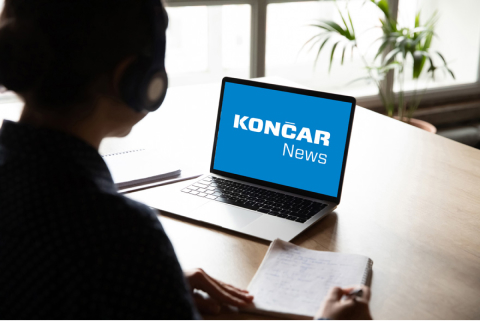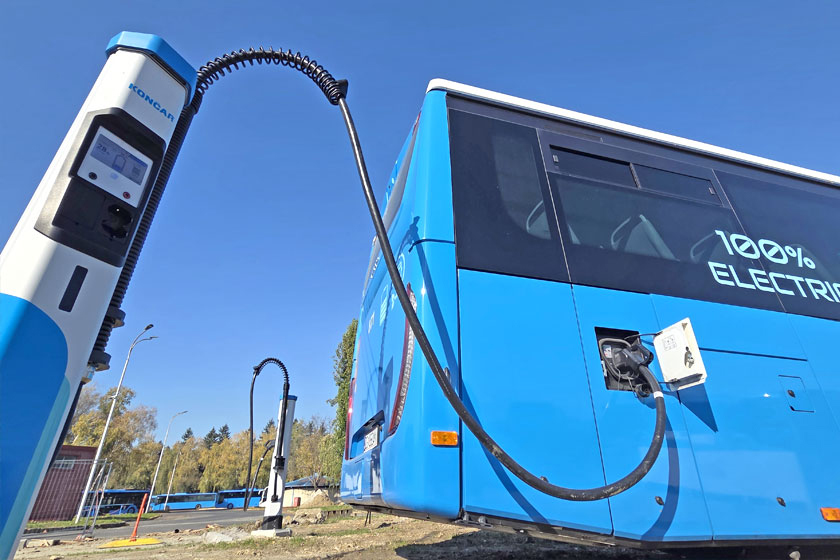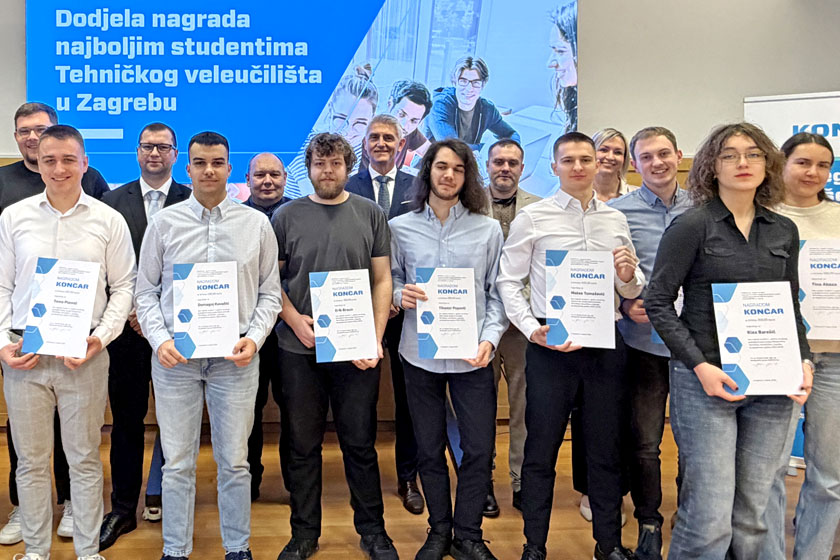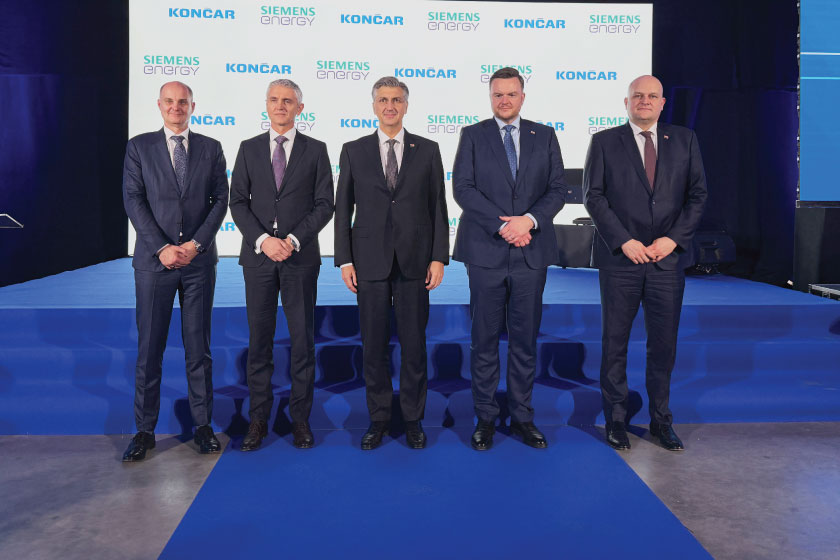HŽ Passenger Transport expands fleet with 13 new trains
Strategic expansion in urban mobility
On 30 June, a major contract was signed between HŽ Passenger Transport and KONČAR – Electric Vehicles, marking the beginning of a new rail production initiative. The agreement encompasses the delivery of five electro-diesel trains, four battery-electric multiple units, and four battery-powered trains, along with the installation of two charging stations at the Lupoglav and Velika railway stations. The contract was signed by Željko Ukić, President of the Board at HŽ Passenger Transport, and Josip Ninić, President of the Board at KONČAR – Electric Vehicles. Backed by a loan from the European Investment Bank (EIB), the EUR 117.9 million project will see new trains delivered in 2027 and 2028. The signing event was attended by Deputy Prime Minister and Minister of the Sea, Transport and Infrastructure, Oleg Butković, and Gordan Kolak, President of our Management Board, accompanied by their teams.
Minister Butković noted that Croatia is in the midst of the most ambitious rail investment phase in recent decades. By 2035, over EUR 6 billion will be allocated to both key European corridors and regional routes, ensuring balanced infrastructure development and broader access to rail transport nationwide. “In just four years, we’ve invested EUR 194 million in upgrading our fleet. The next three and a half years will see an expansion of 24 new trains, with nearly EUR 200 million earmarked for this phase, including those covered by today’s contracts”, Butković stated.
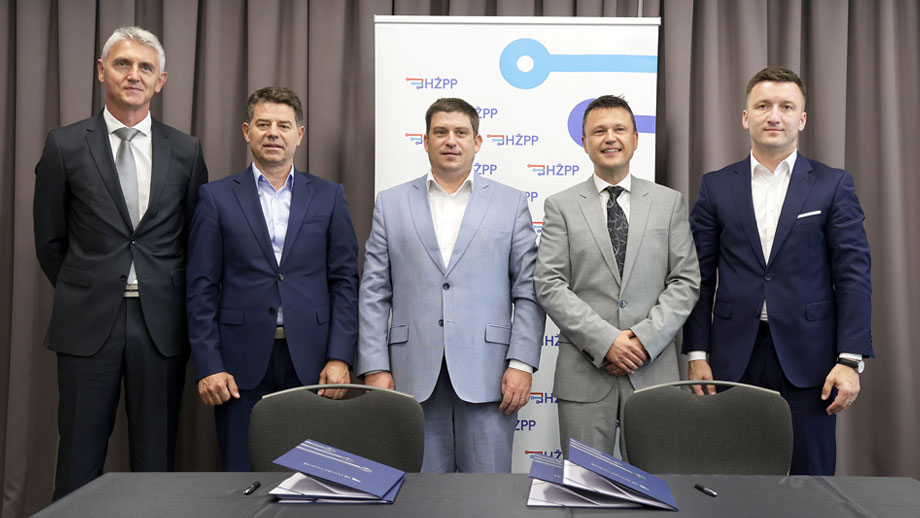
The new trainsets will significantly enhance service quality and strengthen both local and regional connectivity, particularly across non-electrified sections of the rail network. “Today, we operate new electric multiple units that serve passengers on electrified lines throughout the country. However, more than 60% of Croatia’s railway network remains non-electrified, which is why these new agreements are so crucial”, said Željko Ukić, President of the Management Board of HŽ Passenger Transport. “The electro-diesel trains are hybrid units that will be deployed across both electrified and non-electrified lines, much like the battery-electric multiple units. Battery-powered trains, on the other hand, are specifically designed for routes without an overhead power supply”, Ukić added.
According to our CEO Gordan Kolak, the signing of these contracts represents a strategic extension of the company’s enduring alliance with HŽ Passenger Transport, an alliance rooted in a shared ambition to deliver a technologically advanced, environmentally sustainable, and nationally transformative public transportation system. “At KONČAR, we are deeply committed to ongoing innovation, investing in next-generation rail technologies and expanding our manufacturing capabilities to strengthen Croatia’s industrial base and deliver world-class solutions across Europe and beyond. This project is a key part of a broader transformation effort that will, over the coming years, redefine public transport in Croatia - making it cleaner, faster, quieter, and more inclusive”, said Kolak. He went on to thank HŽ Passenger Transport for their continued trust, while also recognizing the invaluable contributions of KONČAR employees - especially those whose dedication and expertise directly drive the success of initiatives like this one - and expressing appreciation to the company’s partners, whose collaboration remains essential to the realization of such projects.
Electro-diesel trains will serve routes from Zagreb to Koprivnica, Osijek, Čakovec, Kotoriba, Zadar, Rijeka, and Pula (via Slovenia). These dual-mode units will operate electrically on electrified lines and switch to diesel on non-electrified ones, with a top speed of 160 km/h. Battery-electric multiple units will provide adaptable service across both network types. On non-electrified routes, they will be powered by onboard batteries (up to 120 km/h), while on electrified lines, they will draw from the overhead system to reach speeds of 160 km/h. Batteries will be charged via the catenary or at strategically installed charging stations. In addition, fully battery-powered trains will be introduced specifically for non-electrified lines. These units will rely exclusively on stationary charging infrastructure and will operate at speeds up to 120 km/h, contributing to a cleaner, more connected, and future-ready transport system.
